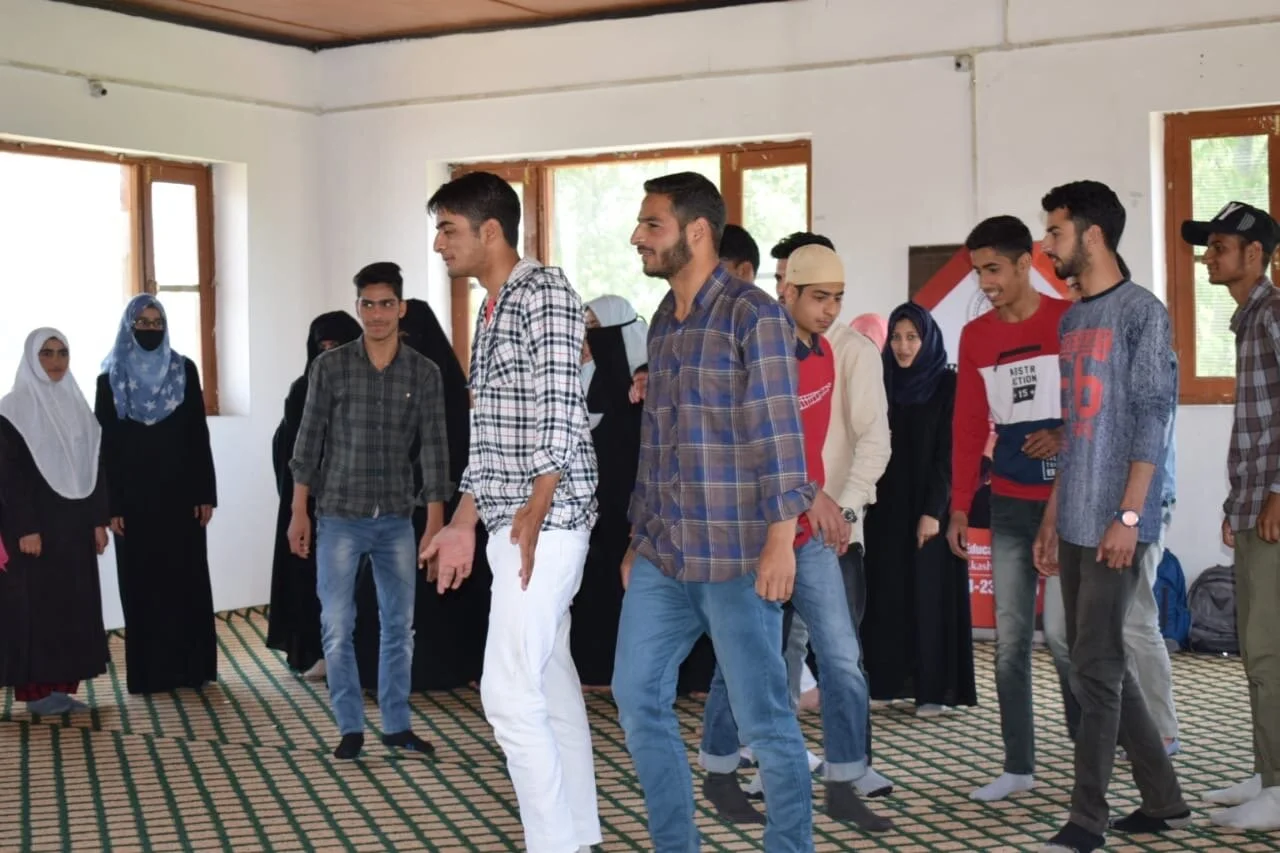Author: Ipsita Sarkar
“Kahaniyan, dastan, fasaana, dastangoi, Dadi’s Lori, it is fiction, it is truth, it is a thriller, it is a melodrama…basically a story is a slice of life”- RJ Peeyush
“What makes a good story?”, “How are stories important for students?”, “Can stories bring us closer to our culture?”, “How do you start a story?”…These and many questions related to Storytelling were asked by the Student Scholars of the Kashmir Education Initiative on 26th August 2020, in a regaling online conversation with RJ Peeyush Singh. Also known as Radio Ka Bachan on the popular Radio Nasha, RJ Peeyush is a Radio Jockey, Storyteller, Content Creator, Youtuber, and Voice Over Artist with over 15 years of experience in engaging audiences across different genres and target groups.
When Mr. Omar Hafiz, Lead Mentor and Program Manager at KEI and a Storyteller himself asked RJ Peeyush to introduce himself in a story-like language, he mentioned the radio show, ‘Ek Choti Si Kahani-Aam Zindagi Ki Khaas Kahaniyan’ that he hosts. Yes, the Webinar session was quite literally about the extraordinary power of a seemingly ordinary story, and even the simplest common man had inside him the most magical stories.
He elaborated on the two components of a story-truth and fiction. How fiction was woven in a make-believe world with animal characters, fairies, and demons, while the truth was retold through autobiographies. He traveled across time and latitude, as he referred to the fables and folklores of Panchatantra, Aesop’s, Arabian Nights, the afsanas and dastan goi of the renowned storyteller, Ismail Mir, the bedtime stories narrated by Grannies and Grandpas and how their morals and essence evolved over a period of time. In our childhood, moral stories were meant to make us sleep, but as adults, these stories awakened our conscience.
Mr. Omar Hafiz shared that the way a storyteller narrated the story could influence how the audience would grasp its meaning. That is how some stories would be forgotten, while others would remain memorable with the passage of time. RJ Peeyush added that the kind of stories that we gravitate towards shapes our personalities. He explained, “If we have grown on a diet of victory and loss stories, we evolve as brave people, if we have heard umpteen number of stories on right and wrong, we grow up as morally conscientious and so on.”
He described how stories were universal no matter which region or language they belonged to. Yet, a good story regardless of the medium it was conveyed through, print, radio, television or cinema, relied on 6 basic characteristics. Firstly, each story should have a purpose, in the form of a plot and structure. Secondly, the writer and the storyteller had to believe in the purpose of the story, in the qualities and the voice of the characters. Thirdly, there had to be a central character whose struggles and growth the audience could empathize with. That character could be an underdog like in the story of David and Goliath, it could be a human or a speechless animal or it could even be a city or an inanimate object. Fourthly, the story had to connect with the 6 universal and deepest emotions of love, anger, disgust, fear, happiness, sadness. If the reader or listener could connect with even one emotion, that was the sign of a winning story. Fifth, the story had to have a surprise element. He gave the example of detective thriller stories such as Sherlock Holmes, Byomkesh Bakshi or even fairy tales that had suspense in them like the Princess and the Frog. And sixth, a story should be simple and focussed with minimum characters and focus on the central plot.
Like all good stories leave the audience asking for more, the second half of the ‘Power of Storytelling’ session left the KEI Scholar Students with a long line-up of questions. When Raziya asked how students could benefit from stories, RJ Peeyush talked about how stories transfer good humanistic values of strength, courage, patience, etc in a child that would remain ingrained longer than lessons in academics. Mehlika asked how storytelling was a means to explore one’s culture and pat came the example of the story of Gul Noor that was based in Kashmir. Such stories, RJ Peeyush would create greater awareness of the local conditions and generate deeper attachment to the characters. Zubair wanted tips on how to begin a story, so RJ Peeyush recommended that the storyteller identify the point where they felt more emotionally connected to and move the story backward from there. When Rukhsana wanted to know if an attractive voice was essential to become an RJ, he replied that content, creativity, and confidence were bigger dealmakers than an attractive voice if one wanted to be a successful RJ.
The story must go on…Mr Omar Hafiz and RJ Peeyush mutually decided at the end of the session. It was announced that the Scholar Students would be given a task to create their own stories so that the next Session with RJ Peeyush could see multiple storytellers from amongst the audience itself!

